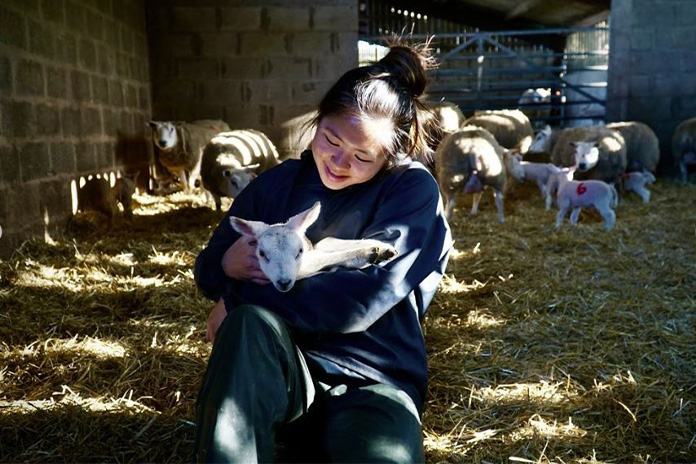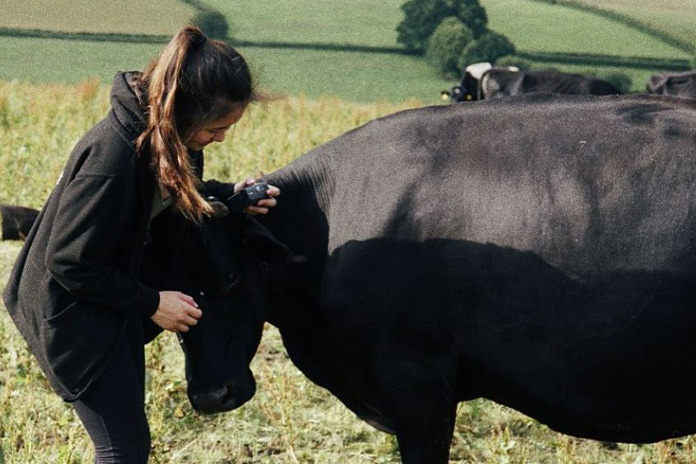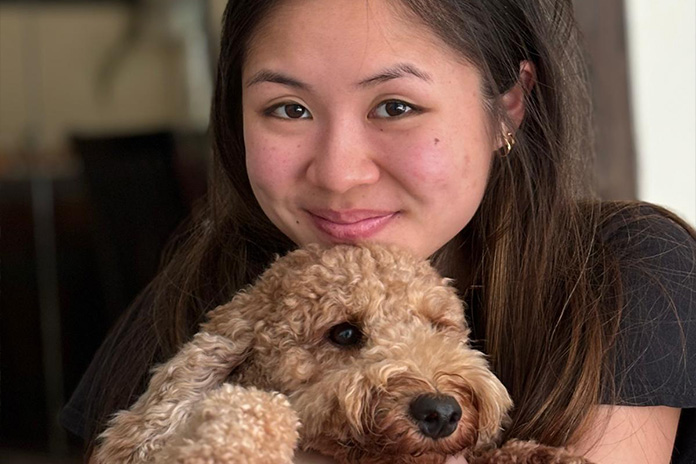
IF the presence of pet shops in malls and people walking their dogs serve as indicators, pet ownership in Singapore seems to be at a healthy level.
In the mainstream media, the Animal & Veterinary Service (AVS) has reported that the number of dog licenses in Singapore jumped from 70,000 in 2019 to about 87,000 in 2022.
With the Cat Management Framework to be rolled out from 1 September 2024, the number of licensed pets in Singapore appears to be on an upward trajectory.
But, along with the joys of owning a pet, owners have to contend with their pets’ health being maintained. Besides the cost of feeding a pet, regular visits to the vet will cost hundreds of dollars, running into the thousands of dollars if more intensive care is required.
It’s a good time to be a vet.
And in Simone Ku’s case, a great time to be recognised for her work as a fourth-year veterinary student at the Royal Veterinary College (RVC) in London.
Simone recently received the Undergraduate Student Inspiration Award from the Kennel Club Charitable Trust, recognising her pioneering work in pain relief and behaviour management in dogs.
She is only the second Singaporean to receive such recognition.
“I feel incredibly honoured and grateful for this acknowledgement. It validates the importance of my work and motivates me to continue striving for excellence in the field of veterinary medicine,” Simone enthuses, after completing a 12-hour shift.
Mammalian Painkillers
The award will boost the young Singaporean’s credibility and visibility in the veterinary community, while also providing opportunities for furthering her research on gabapentin in dogs.
The drug is an anticonvulsant used to treat partial seizures and chronic pain.
“This research has the potential to provide valuable insights into its use across the wider mammal population, including humans.
“Such findings could lead to advancements in pain management treatments beyond veterinary medicine,” Simone explains.
Gabapentin is also used to treat humans with chronic pain and epilepsy. While humans do not share identical physiology with canines, Simone notes that, “there are comparisons to be made, as mammals share some similar receptors”.
Hence, further study of the drug’s use in canines may provide greater understanding of how it may interact with receptors also present in humans.
ALSO READ: Simple Rules To Avoid Being Scammed
Working In Unfamiliar Environments
Simone moved to the UK in 2020 to pursue her dream of becoming a veterinarian, and to benefit from the advanced veterinary education and research opportunities available at the Royal Veterinary College (RVC) in London. “At the moment, I am focused on completing my studies while conducting research on canine pain management, specifically exploring the use of gabapentin,” the fourth-year student explains.
The award will provide Simone with financial support for publishing her research in open-access journals, attending significant veterinary conferences and creating educational materials for veterinarians and pet owners.
Many aspiring Singaporeans seek professional training abroad, but not all can survive absent the comforts of home. Fewer still not only survive, but thrive and make a name for themselves in these unfamiliar settings.

All Creatures, Great And Small
As a veterinary student, Simone has experience with animals of all shapes and sizes, including cats, dogs, rabbits and small mammals such as hamsters, in addition to cows, sheep, pigs, and horses. She relishes the breadth of her interactions, noting that “each species presents unique challenges and rewards, contributing to a diverse and enriching experience”.
Simone’s career choice was motivated by the deeply stimulating nature of the field and opportunity it provides, not only to learn about a variety of species, but to apply the knowledge practically. Simultaneously motivated by her love of animals, she divulges, “I have experienced the stress of seeing my pets in pain and want to help owners understand and treat their pets better, so both can have a better quality of life”.
Naturally, her professional experiences thus far have only strengthened her relationship with her patients. “Studying veterinary medicine has deepened my appreciation for the complexity and resilience of animals. It has also heightened my awareness of their needs and the importance of compassionate care, making me even more committed to advocating for their welfare.”
Simone plans on staying in the UK for the time being to continue gaining valuable international experience and exposure. “It will allow me to bring back advanced knowledge and skills to contribute to the veterinary field in Singapore.”
While her profession requires her to remain agnostic, Simone reveals an affinity for canines. “My personal journey with my dog, Smudge, has given me a special connection to dogs,” she admits.

Advice For The Vets In Society
The young vet-to-be reflects on the importance of pets in Singapore society.
“Pets provide numerous benefits in an ageing society, including companionship, reduced feelings of loneliness, increased physical activity and improved mental health.
“While the prospect of outliving a pet can be challenging, the joy and comfort they bring often outweigh this concern,” Simone reckons.
“Pets can significantly enhance the quality of life for elderly individuals.”
As for aspiring vets, Simone’s advice is to stay passionate and curious.
“Veterinary medicine is a challenging but incredibly rewarding field. Be open to taking risks, as pursuing veterinary medicine, for a Singaporean, entails moving abroad and being far from family. The course is long and content-heavy, and clinical placements can be in a variety of locations and weather conditions.
“Perseverance is key. Seek out opportunities for learning and hands-on experience, stay dedicated to your studies, and never lose sight of your love for animals. Your dedication and compassion will drive your success.”





















